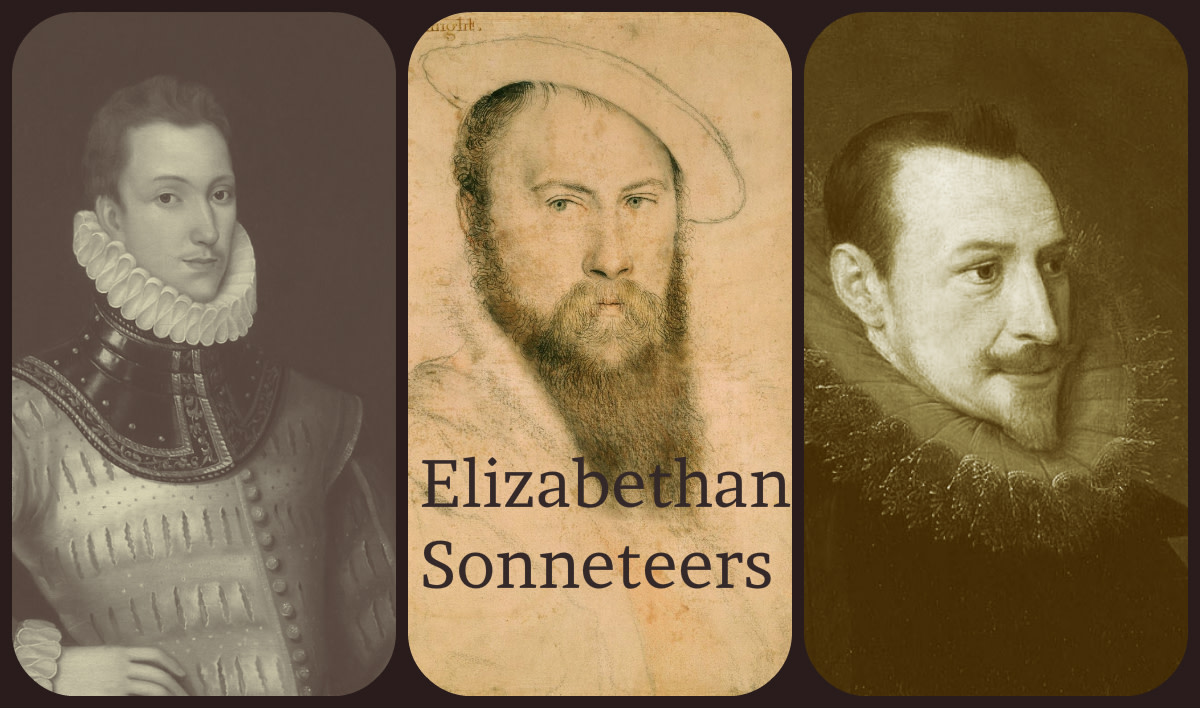"Shakespeare Sonnet 37," edited twice to an American Sonnet for today's readers, with workshops on legitimate editing
When, if ever, is it legitimate to edit Shakespeare?
Workshop A (July 2011): Editing Shakespeare for One's Friends
A1. Welcome to this Tuesday Workshop for Writers and Teachers.
A2. Please feel free to raise questions or make comment on any portion of this material.
A3. Idle curiosity has many uses and pleasures, as we all know, but here we come together every Tuesday from all over the world to dig one level deeper into the foundations of English language and literature -- to think together, discuss together, learn together, and to motivate and challenge each other to put to more effective, more beautiful use, the English language that is our precious, indispensable birthright.
A4. In our study of great poets, we invariably return to William Shakespeare (1564-1616) for the finest examples of sonnet poetry in the English language.
A5. No one else's work equals the depth, the range, the psychological insight, the pure mastery of language that Shakespeare displayed in the sonnets he wrote during his so-called "early years" after he first arrived about 1588-90 in the London of Queen Elizabeth, but well before her death on March 24, 1603.
A6. Shakespeare himself did not publish the sonnets; an unknown person pirated them to a London printer in May 1609.
A7. You can read this whole story freshly written, as retold by analogy to the fate of Bob Dylan's early songs, in the fascinating new book by Clinton Heylin, So Long As Men Can Breathe: The Untold Story of Shakespeare's Sonnets (Da Capo Press, 2012).
A8. When writing a personal letter, I like to enclose something extra in the envelope, and for many years I would sometimes enclose a copy of one of the sonnets from the widely-known paperback The Sonnets in the Pelican Shakespeare series (ed. Douglas Bush and Alfred Harbage, rev. ed., Penguin Books, 1970).
A9. But over the years I increasingly discovered that much of Shakespeare's verbiage, to say the least, did not communicate as effectively as one would wish with many modern American ears.
A10. Four centuries of relentless change in language and culture have closed the doors for more and more people on what William Carlos Williams once called "the greatest university of all," the writings of Shakespeare.
A11. Contrary to my own teaching advice and personal example, few adults, so it seems, devote any significant amount of their time to systematically expanding their vocabularies with unfamiliar words, or to learning how to read more competently, and understand more perceptively, the rich, complex treasury of thought and feeling inscribed in the great works of English language and literature.
A12. Pondering these issues over time led me to wonder if I might usefully apply my editorial experience to any of Shakespeare's sonnets, or to portions of his plays, without destroying the essence of his language and meaning.
A13. It seems doubtful to me that hard-line Elizabethan purists would embrace such a project with any measure of glee, and I can understand that reluctance, but large numbers of people who might benefit from reading Shakespeare will most likely never set out to become more conversant, much less more comfortable, with Elizabethan writing images and styles that for many years now have increasingly generated footnotes and explanations.
A14. So the issue seems to me at least worth discussing in a Workshop for Writers and Teachers: "Would it be useful today, hence legitimate, to edit Shakespeare's poetry to make it more accessible to a broader modern American audience?"
A15. What do you think about this question, this idea? Please let me hear your opinions.
A16. You realize already, do you not, that merely discussing what you read can double or triple its long-range learning value.
A17. I publish these Tuesday Workshop materials not merely as perfunctory lectures, vanity monologues, or self-centered soliloquies, but as useful starting points for interactive discussion and learning.
A18. The workshops have what I consider a sacred mission to elicit reader response, to stimulate fresh thought, to provoke new learning.
A19. We established Tuesdays to provide a structured weekly target day for adult continuing learners all over the world to share with each other in the continuing study and preservation of the English language and its various literatures.
A20. On Monday, March 21, 2011, while sitting in the reading room of the Villa Park Public Library, I wrote a letter to Rev. Aleksandra Sikora, a Chicago minister whose previous day's presentation I had especially admired, and it seemed appropriate to me, except for the Renaissance obscurities, to enclose a copy of sonnet 37.
A21. I used the occasion to edit the sonnet into contemporary literate English, initially for this one person's enjoyment, but later to share through HubPages with anyone interested in such things.
Shakespeare's Sonnet 37:
Ten Times Happy Me!
(as edited by Max Havlick, March 2011)
As any worn-out father takes delight
to see his active child in deeds of youth,
so I, made lame and weak by Fortune's right,
take happy comfort in your worth and truth.
For whether beauty, birth, or wealth, or wit,
or any of these all, or all, or more,
entitled in your heart do crownèd sit,
I feel myself engrafted to its store.
So I no more am lame, poor, or despised
while your sweet shadow does such sunshine give
that I, in your abundance, am sufficed
and, as one part of all your glory, live.
Whatever's best, that best I wish for thee,
for when it comes, then ten times happy me!
Occasion and setting of Sonnet 37
A22. Endless theories abound on the meaning of this poem for Shakespeare's personal life, because many modern scholars detect love triangles evolving throughout the published sequence of the sonnets, though no one so far has provided any firm knowledge of when, where, or under what circumstances, any one of these poems was first written.
A23. A simpler, more straightforward theory finds a young poet in his middle twenties swept up along with the rest of England in patriotic celebration of Queen Elizabeth after the epic defeat and destruction of the Spanish Armada in the summer of 1588.
A24. We know Shakespeare wrote plays at least by 1590-92 (The Comedy of Errors, and Love's Labor's Lost), and by 1593 he had published major poetry (Venus and Adonis).
A25. Court records even show his name in the list of Lord Chamberlain's company of players presenting two comedies for Queen Elizabeth's court during the Christmas season of 1594.
A26. So I see Sonnet 37 as most likely a tribute to honor the beloved Queen who had ascended to the throne of England in November of 1558, some five years and five months before the infant boy William Shakespeare was born in April 1564 in the town of Stratford on the Avon.
A27. The first two lines may even portray the aging Queen's delight while watching the company of talented young holiday performers -- her subjects, her children.
A28. If this theory be true, then Sonnet 37 predicted an even more striking fulfillment than previously noticed, because during the ensuing 400 years, the name of the Queen's Elizabethan England has become forever linked, if not primarily defined, by these sonnets and the other dramatic writing done under the name of William Shakespeare.
Workshop B (Jan. 2013): Developing Sonnet 37 as an American Sonnet
B1. In January 2013, when examining my version of this sonnet to give to a few friends, some further refinements occurred to me along the lines of the American sonnet style I had developed and described in various poems and essays on HubPages (2011-12), and collected with some others in my booklet American Sonnets and Other Poems (private printing, April 2012).
B2. Briefly stated, to provide a more American style of explanation, each line uses six or seven metered feet rather than the five feet found in the classic iambic pentameter used by Shakespeare and his followers.
Anytime It Graces You,
Then Ten Times Happy Me!
Shakespeare Sonnet 37 edited
to American Sonnet style by
Max J. Havlick, January 2013
As any aging, worn-out parent takes delight
to watch his energetic child in deeds of youth,
so I, made lame and weak by Fortune's right and might,
take happy comfort when I see your worth and truth.
For whether it be birth, or beauty, wealth, or wit,
or any of these ornaments, or all, or more,
entitled on your heart and head to crownèd sit,
I feel myself enhanced, engrafted to its store.
Thus I no more must sit here lame, poor, or despised,
because your shadow sweetly doth such sunshine give
to me, that I, from your abundance, am sufficed,
and will, as part of all your glory, always live.
Whatever constitutes your best, that best I wish for thee,
for anytime it graces you, then ten times happy me!
Final Comment
B3. It would please me greatly if you gave to me, and to your fellow readers, the benefit of your response to these workshop comments and the edited poems.
B4. In any case, please continue to join us every Tuesday in our study of the English language and our readings in the various English literatures.
_______________________________________________________________
Copyright (c) 2013 by The Max Havlick School, 16 W. Vermont St., Villa Park, Illinois 60181-1938, all rights reserved. We consider language skills a basic key to life, so we feature English language, literature, and spirituality for any serious adult desiring deeper skills of a productive, creative life. We value each person's life as a priceless work of art.





